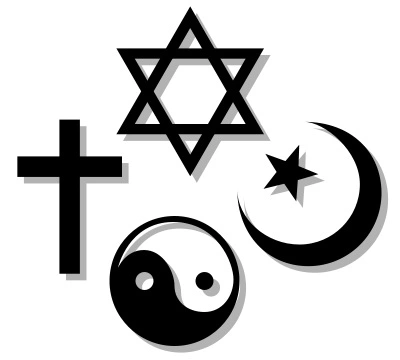ethics and religion
Publié le 22/02/2012

Extrait du document

Right behavior in the light
of religion. The word "ethics" means standards or
norms of behavior expected by a society and justifi
ed by religion or philosophy in such matters as
right and wrong, honesty, the legitimacy of certain
practices (as in "medical ethics" or "business ethics"),
and, in "social ethics," in respect to what
a society as a whole should do about issues like
poverty or whether war is ever justifi ed. The line
between ethics and a related term, morality, is fuzzy.
But today "ethics" is usually taken to refer to the
philosophical and religious study of right behavior,
to the ideals of society, of certain professions, and
of individuals in a public context, while "morals"
refers more to a personal code of conduct.
Any thoughtful ethical system begins with
a view of the universe as a whole within which
the ethics make sense. One could hold that ethics
begins with the will of GOD, with "natural law" or
the way the universe works, or an assessment of
what the results of an action would be, or even with
purely individual choice. Ethical views are divided
by philosophers into two types. Deontological ethics
are "oughts," coming from something that is
considered prior or given: the will of God, the laws
of nature. Teleological or consequentialist ethics
are determined on the basis of the consequences
or results of an action and whether it is good or
bad in the eyes of the person making the decision.
A deontologist might say, for example, that killing
is always wrong because God has forbidden it, and
therefore capital punishment or any killing in war
is always sinful. Another of the same camp might
say it is right if it is a matter of meting out true
justice, since establishing justice is always God's
will too. A consequentialist might respond that it
depends on how much good the capital punishment
would do, or whether the war is a "just war"
and how much benefi t winning it would bring.
Many religious people would also say that the real
will of God is love or compassion, not simple "do's
and don't's," and that different circumstances may
call for different ways of exercising love or caring
about the real good of others, and they may range
from indulgence to fi rmness when people need
fi rmness. Another issue is intention: Do we judge ethics by the good intentions of parties, or only by
consequences?
Thinking about ethics is an important part of
religion. Ethics are where the ideals of a religion
intersect with the crucial problems of society and
of everyone's everyday life. Many ethical issues
today, such as abortion, war, public honesty,
"mercy killing," and others, are not easy to debate.
But religions must deal with them or risk being
irrelevant.
Liens utiles
- Relationship between religion, spirituality, and young Lebanese university students’ well-being.
- What are reasons and why do they matter in ethics?
- Animals and ethics
- dreams and religion
- drugs and religion
